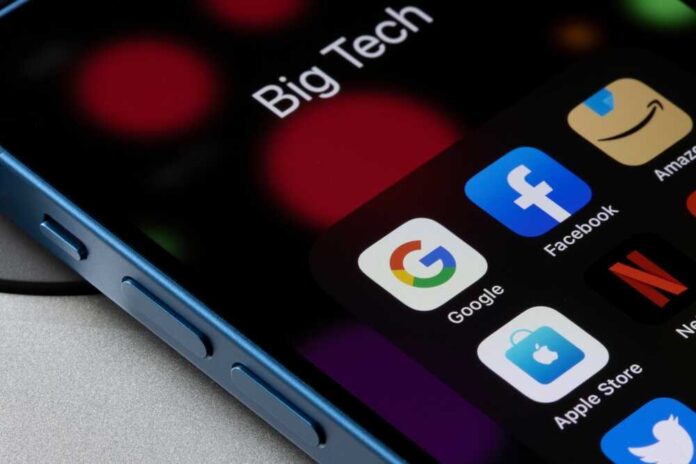
Sens. Josh Hawley (R-MO) and Richard Blumenthal (D-CT) have introduced a bill that would prevent generative artificial intelligence (AI) companies from being covered by Section 230 of the Communications Decency Act.
Section 230 was written to limit tech platforms’ legal liability for the content that is posted or uploaded by users on their platforms. While the measure was meant to distinguish between platforms and publishers, like the mainstream media, many social media companies have misused their protections to censor, ban and publish so-called “fact-checks” on their users.
Now, Hawley is vowing that Congress will not “make the same mistakes with generative AI as we did with Big Tech on Section 230.”
“When these new technologies harm innocent people, the companies must be held accountable. Victims deserve their day in court and this bipartisan proposal will make that a reality,” he added in the press release.
“Google, Facebook, the biggest corporations in the world, you can’t sue them because they’ve got special government immunity,” Hawley explained. “Which is ridiculous, particularly in this AI context. Are you telling me, as a parent, that if my child has a deep fake made of him or her, using Google’s technology, using Facebook’s technology, and it gets posted on their platforms, and they know about it, I can’t sue them, as a parent, to protect my children? No way. Every parent ought to have that right.”
In the “No Section 230 Immunity for AI Act,” Hawley and Blumenthal propose making amendments to Section 230 to prohibit AI companies from taking advantage of the law in a way that would be harmful to the public. If the measure passes, it would hold individuals who use AI to create lifelike false images accountable in court.
Blumenthal also spoke out about the bill, noting that it is a “first step” toward a goal of imposing important safeguards on AI development.
“AI companies should be forced to take responsibility for business decisions as they’re developing products—without any Section 230 legal shield,” the Democrat senator wrote in a statement. “This legislation is the first step in our effort to write the rules of AI and establish safeguards as we enter this new era. AI platform accountability is a key principle of a framework for regulation that targets risk and protects the public.”
AI companies should be forced to take responsibility for business decisions as they’re developing products—without any Sec. 230 legal shield. This bill is the first step in our effort to write the rules of AI & establish safeguards as we enter this new era.https://t.co/31oTeupZCf
— Richard Blumenthal (@SenBlumenthal) June 14, 2023
According to the press release, the bill will “empower Americans harmed by generative AI models to sue AI companies in federal or state court.”
Hawley celebrated the legislation in a tweet, noting that it is the “first bipartisan AI bill” and arguing that it would put “power in the hands of consumers to sue when AI harms them.”
Today @SenBlumenthal and I introduce the first bipartisan AI bill – putting power in the hands of consumers to sue when AI harms them. It’s landmark protection for Americans, and more to come https://t.co/10rJOr5IP3
— Josh Hawley (@HawleyMO) June 14, 2023
Many prominent members of the tech community have spoken out about the dangers of AI over the years, including Twitter CEO Elon Musk.
“AI is more dangerous than, say, mismanaged aircraft design or production maintenance or bad car production, in the sense that it is, it has the potential — however small one may regard that probability, but it is non-trivial — it has the potential of civilization destruction,” Musk said in an interview with Tucker Carlson.



























